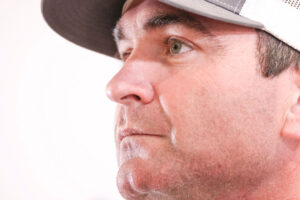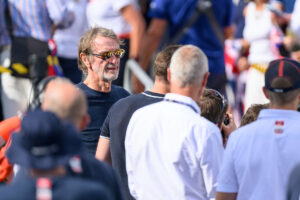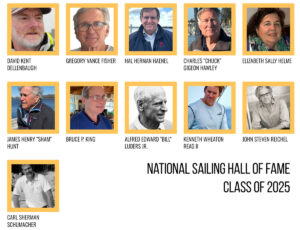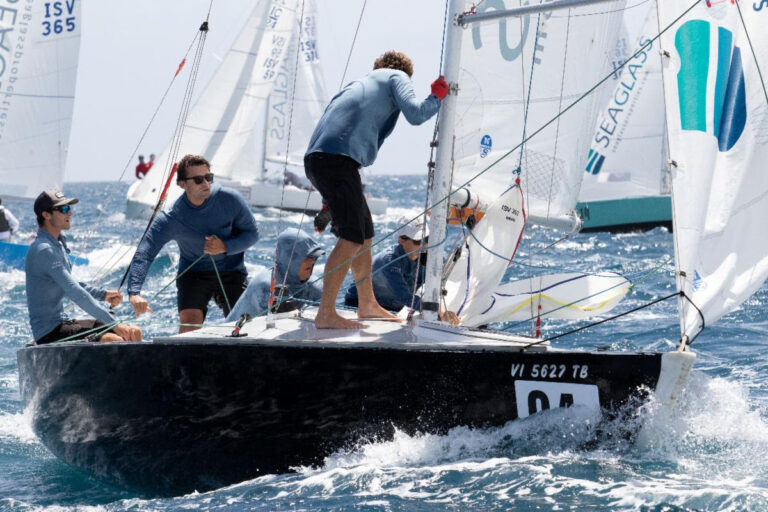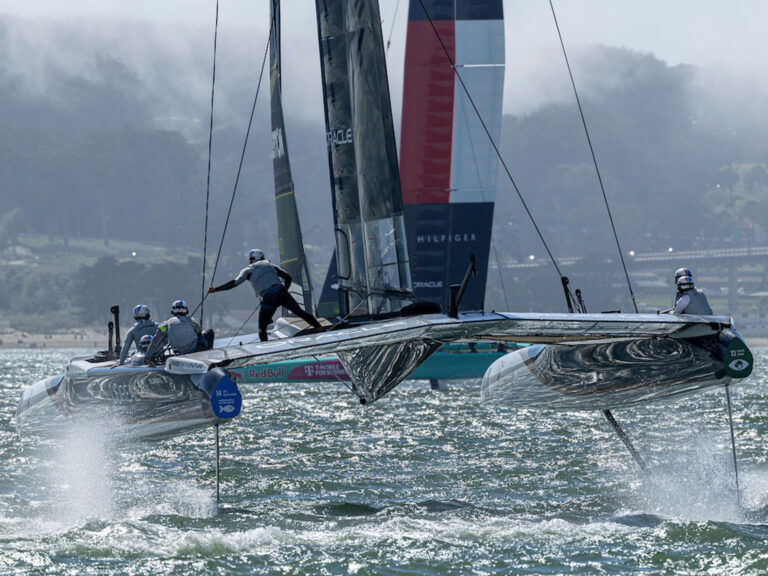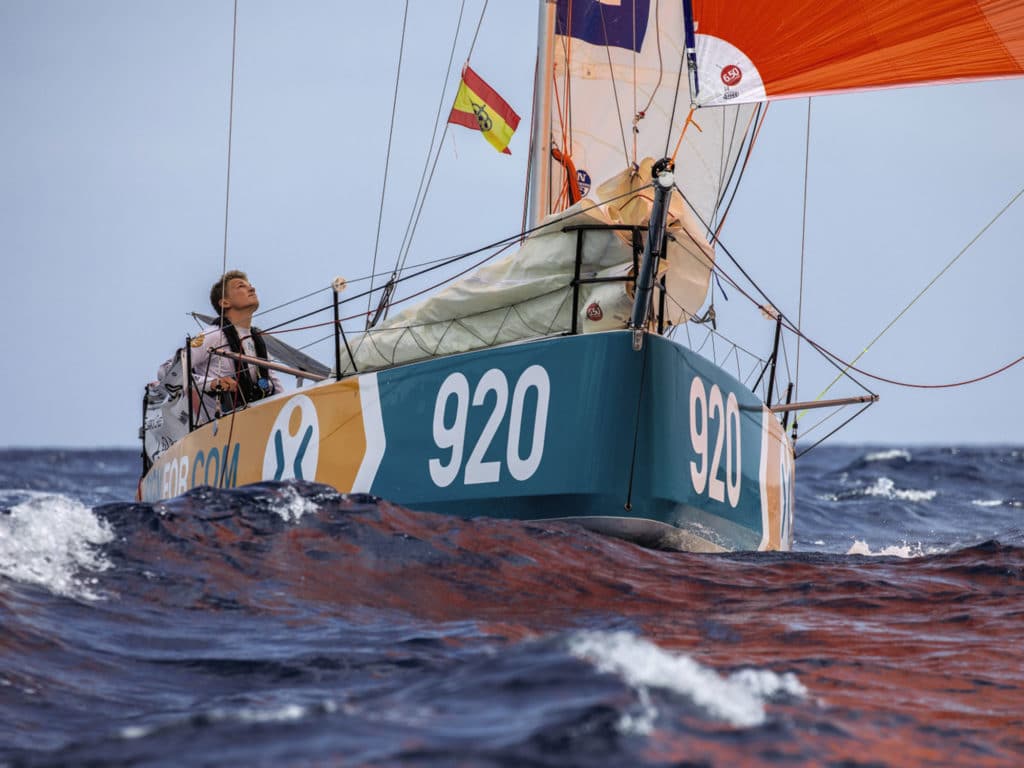
On the first morning of October, 19-year-old Melwin Fink was south of Spain’s Cape Finisterre when an alert came from organizers of the Mini Transat Euro Chef, warning competitors of incoming heavy weather and advising them to seek shelter. Most competitors followed the race committee’s advice and turned to ports along the Iberian coast, but Fink weighed his options and pressed on, racing the weather to get farther south before the storm arrived. As a result of his decision to stay at sea and tough out the conditions, the young German sailor went on to win the first leg and establish a commanding lead going into the race’s second leg from the Canary Islands to Guadeloupe. In doing so, Fink sailed himself out of obscurity and onto the podium of this annual Franco-dominated transatlantic race in 21-footers. It was a storybook start to the young sailor’s offshore racing career, but days later, the chapter would take an unexpected twist.
“The weather message [from the race committee] was very short, just wind speeds and waves, and also a sentence that the race [was] not stopped,” Fink says. “People were already planning which harbors to go into, and I said to Christian [Kargl], I think we should continue and wait for the new weather forecast and maybe have a very short stopover.”
The following forecast gave Fink confidence that the zone off Porto, Portugal, would be “manageable,” with 30 knots average, gusts to 40 and 2.5-meter seas. “My boat was in perfect condition, and I didn’t have to fix anything,” Fink says. “The last front had more wind than the coming front was forecast. I was very sure that a lot of people were continuing; the race committee made it clear that we were still racing. It was a lot of wind, but the boats are prepared for this.”
Fink, however, soon learned he was the lone competitor on the course. “I thought, ‘Oh s—, what did I do here?’ But it was fine,” he says. “The wind was gusting to 40 as expected, so I couldn’t sail too high, but I still continued in the right direction. The wind arrived on time with the right conditions, and then at 2:30 a.m., it went away and the north wind arrived, and it was nice sailing to the Canaries.”
As improbable as it was, this teenage rookie of whom few outside the Mini class had ever heard put on a brilliant display of heavy-weather confidence to beat many of France’s best young offshore sailors. With a significant elapsed-time cushion heading into the second leg, the opportunity for Fink to win the race overall was real—but as it turns out, it was too good to be true.
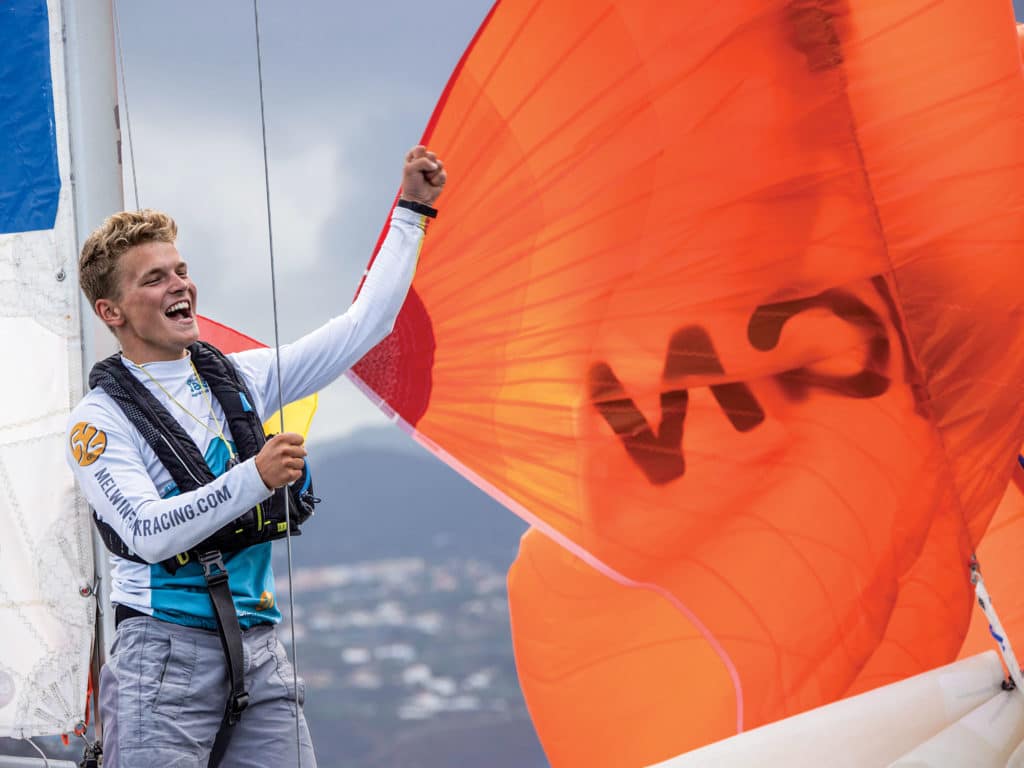
Because virtually every sailor in the fleet stopped at the recommendation of the race committee, 19 competitors filed for redress and were initially awarded 24-hour time deductions by an international jury due to “inadequate action on the part of race management.”
Consequently, Fink’s 24-plus-hour cushion over the rest of the fleet evaporated to one hour and 52 minutes, and then the jury subsequently changed its decision and awarded each boat that stopped a time compensation matching the time of their stops—with a limit of 24 hours.
“I trained very hard for the last two years, and I dreamed about the top 10—and it was realistic,” Fink says. “All the races this year were very good, top 10 or top five, and I was super motivated to do the Transat. With good luck and some good decisions, I got the first place [in Leg 1], which was not even realistic at first. I arrived when my family was there and my friend, and it was very cool to see the island. And then 4 miles from the finishing line, there were film teams, RIBs, family, a TV crew from Germany. I didn’t think that I could do something like this in the race. It was amazing.”
When the second leg started at the end of October, Fink made good progress, and even led the fleet on the tracker for a brief period. His northerly positioning made him look good early on, but it proved to be the wrong long-term strategy when the southerly boats that sailed more miles early on came out ahead with better breeze. In the end, Fink was 21st across the finish line in Guadeloupe, but with his stellar performance on Leg 1, he netted third in the overall rankings. Without the time awards given to his competitors, Fink would have indeed won the Mini Transat overall.
“On Leg 2, in the end, the south route was better. That was hard for me,” he says. “So, I had to accept that and know I will not get the others. I have to do my own race. We got three days of good wind, and I was faster than others. The final result is very nice for me; I’m happy about it. But when I see the whole situation, I would be the first boat. That is hard for me.”
Fink is confidently outspoken and expresses his beliefs with conviction while managing to maintain a fine line between remaining gracious and taking the big-picture approach to the race outcome. He’s mature for his age for sure, but then again, as a 19-year-old who put together a sponsored Mini Transat campaign and then put the boat on the podium on his first attempt, Fink is not your average teenager. He’s already working on his second Mini Transat campaign, though this one will likely be in the faster, more cutting-edge (and significantly more expensive) prototype division. With fellow countrymen Boris Herrmann and Jörg Riechers both entered in the next Vendée Globe race in brand-new boats, Fink is in fine company and well on his way to becoming a household name in the solo-sailing world.

